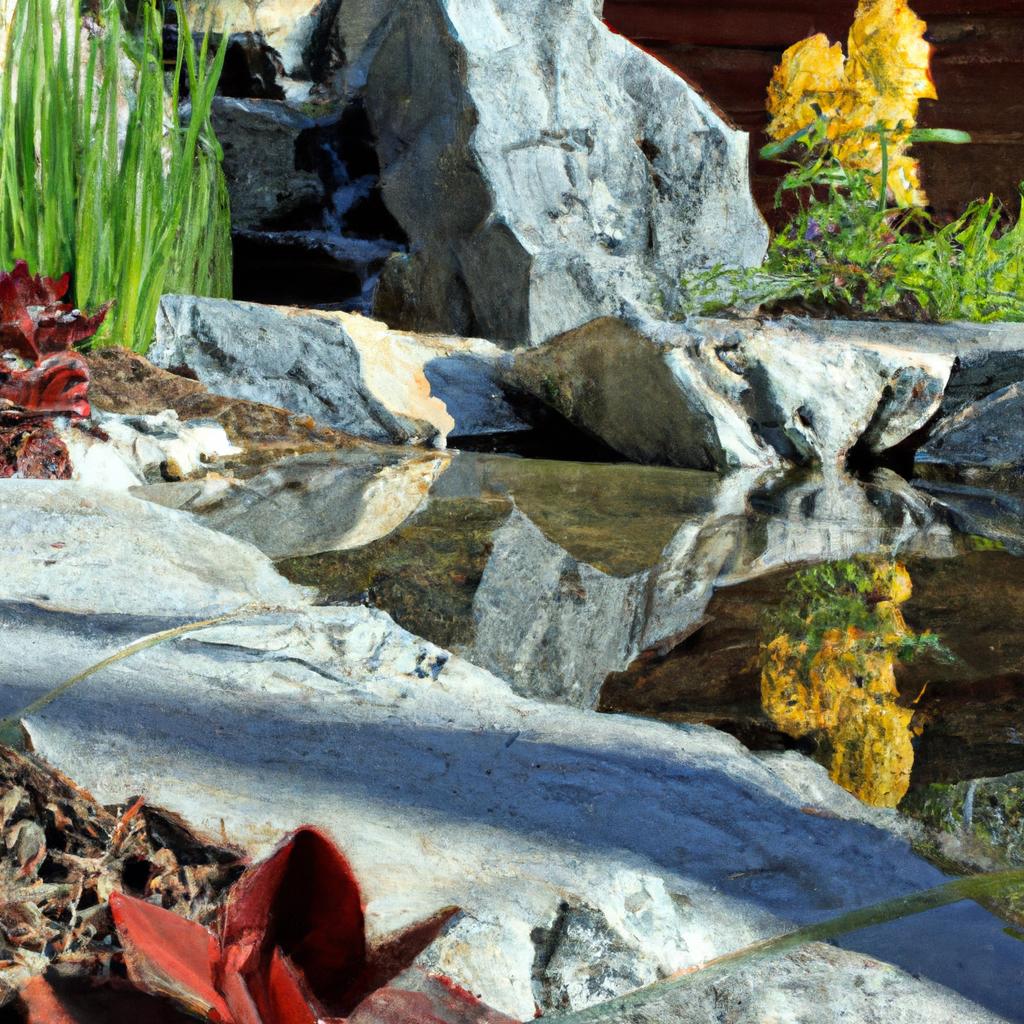Unlock the secrets of a harmonious outdoor sanctuary with feng shui garden landscape design. Create balance, flow, and positive energy in your garden.
Introduction
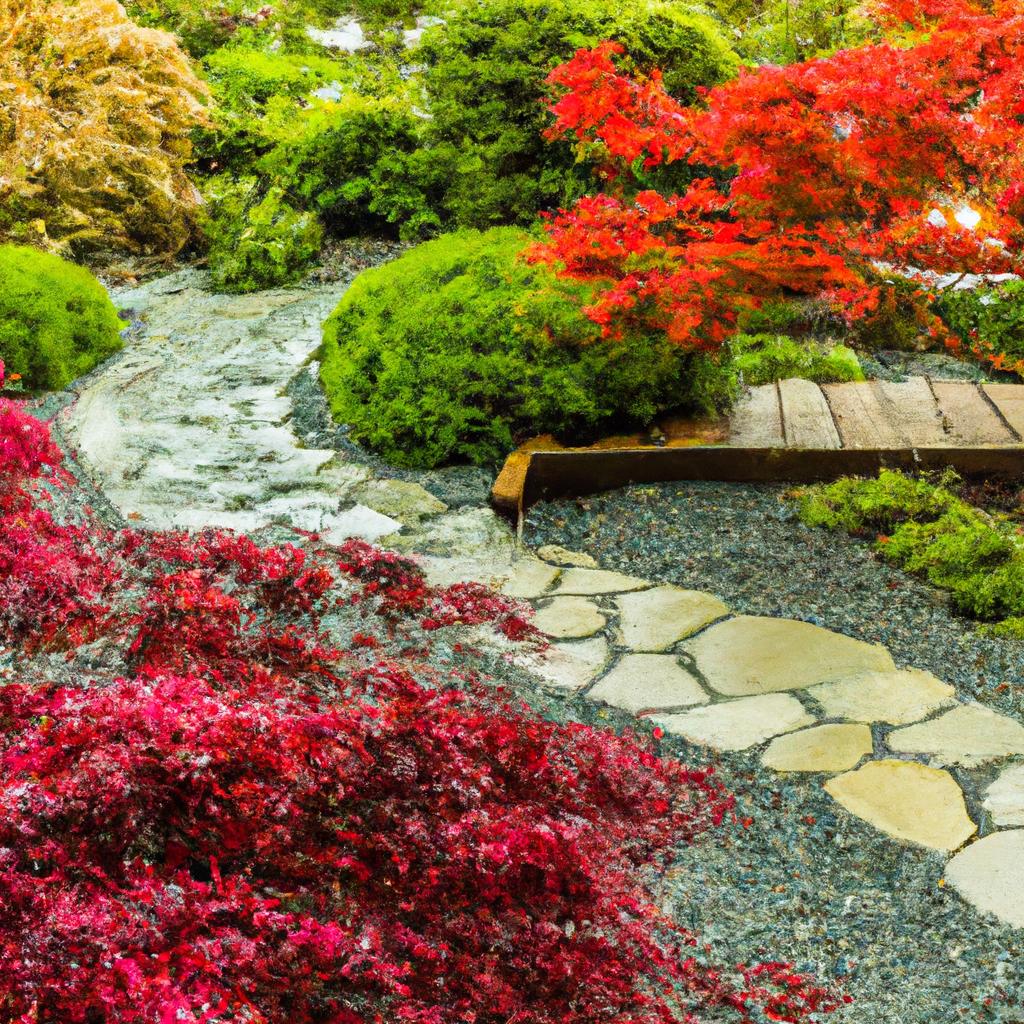
Welcome to the world of Feng Shui garden landscape design, where nature and energy harmoniously intertwine to create a serene and balanced outdoor space. In this article, homegardenartful.com will explore the ancient art and science of Feng Shui, its significance in garden design, and delve into the various aspects that contribute to an optimal Feng Shui garden.
A. What is Feng Shui?
Feng Shui, originating from ancient China, is the practice of arranging objects and spaces in a way that promotes the flow of positive energy, known as “Qi.” It aims to create a harmonious environment that supports well-being, abundance, and a sense of serenity. By understanding and harnessing the principles of Feng Shui, we can enhance the energy in our garden landscapes, allowing for a deeper connection with nature and a more balanced life.
B. Importance of Feng Shui in Garden Landscape Design
Garden landscapes serve as tranquil escapes from the chaos of everyday life, offering solace and rejuvenation. Incorporating Feng Shui principles into your garden design elevates its potential, transforming it into a sanctuary that not only pleases the eye but also nurtures your mind, body, and spirit. A well-designed Feng Shui garden promotes positive energy flow, creating an environment conducive to relaxation, meditation, and personal growth.
C. Overview of the Article’s Content
Throughout this article, we will explore the key principles of Feng Shui in garden landscape design. We will delve into the art of creating balance and harmony, understanding the flow of energy, the significance of natural elements, the use of colors, and the strategic placement of plants and structures. Additionally, we will provide tips on designing a Feng Shui garden landscape, enhancing positive energy, and specific considerations for different areas of your outdoor space.
Are you ready to embark on a journey to transform your garden into a harmonious haven? Let’s dive into the world of Feng Shui garden landscape design and unlock the secrets to a thriving outdoor sanctuary.
Principles of Feng Shui Garden Landscape Design
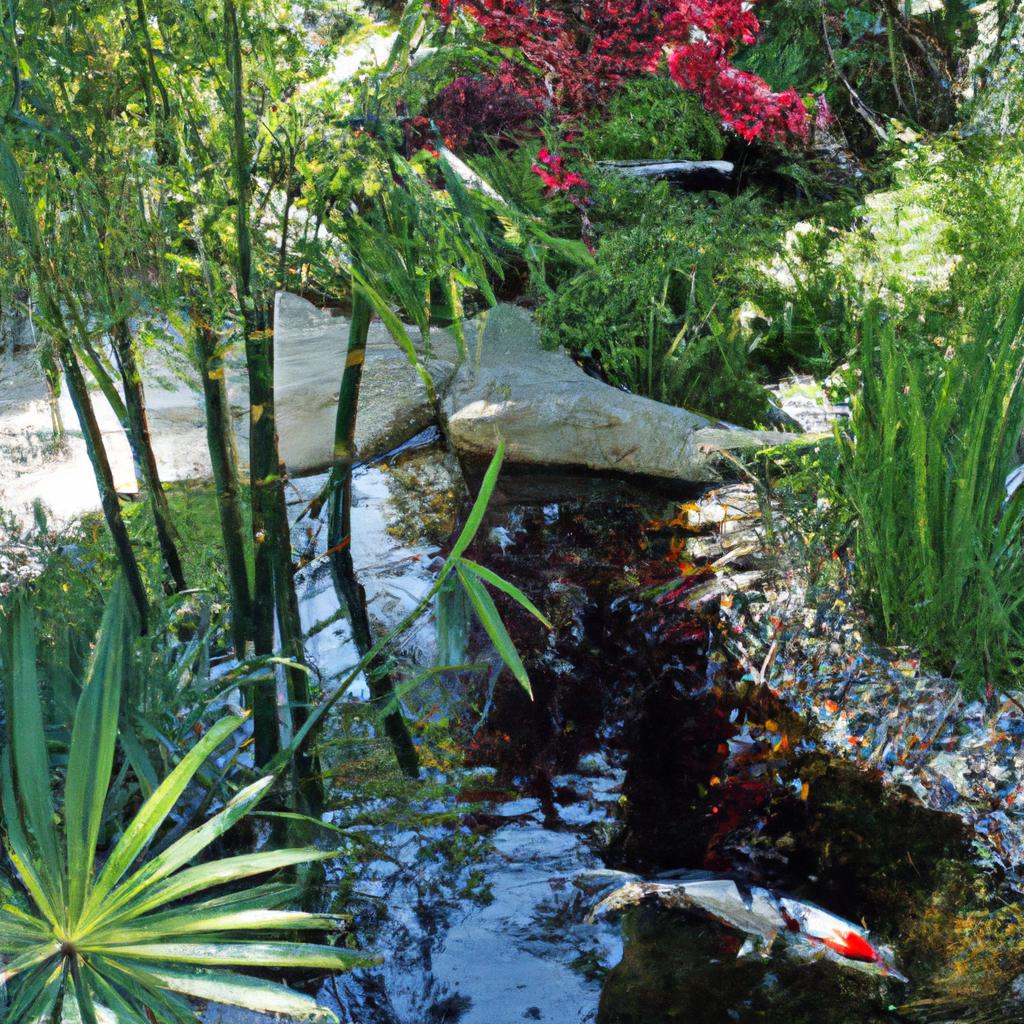
Feng Shui garden landscape design revolves around key principles that guide the arrangement and organization of elements to create a harmonious and balanced outdoor space. Let’s explore these principles in detail:
A. Balance and Harmony
Achieving balance and harmony is fundamental to Feng Shui garden design. It involves a thoughtful arrangement of elements, such as plants, structures, and pathways, to create a visually pleasing and energetically balanced space. Strive for symmetry and proportion in your garden layout, ensuring that no single element dominates the space. By finding equilibrium, you invite a sense of peace and tranquility into your garden.
B. Flow of Energy (Qi)
The flow of energy, or Qi, is crucial in Feng ShuIn garden design, it is essential to create a smooth and unobstructed flow of Qi throughout the space. Avoid clutter and unnecessary obstacles that impede the energy’s natural movement. Pathways should be clear and gently curving, guiding Qi through the garden. Incorporating water features, such as fountains or ponds, can help stimulate the flow of energy and attract positive Q
C. Use of Natural Elements
Feng Shui emphasizes the importance of connecting with nature. Incorporate natural elements into your garden landscape, such as rocks, stones, and wood. These elements ground the energy and create a sense of authenticity and harmony. Introduce a variety of textures and shapes, representing the five elements of Feng Shui (wood, fire, earth, metal, and water), to enhance the balance and vitality of your garden.
D. Colors and Their Significance
Colors play a significant role in Feng Shui garden design, as they have the power to evoke specific energies and emotions. Choose colors that align with the desired atmosphere and purpose of your garden. For instance, warm colors like red and orange energize the space, while cool colors such as blue and green promote calmness and relaxation. Incorporate colors mindfully, considering their impact on the overall energy of your garden.
E. Placement of Plants and Structures
The strategic placement of plants and structures is vital in Feng Shui garden design. Select plants that thrive in your climate and align with the desired energy of specific areas. For example, tall trees can provide protection and privacy, while low-growing plants near entrances invite positive energy. Place structures, such as gazebos or seating areas, to enhance the flow of Qi and create inviting spaces for relaxation and contemplation.
By incorporating these principles of balance, energy flow, natural elements, color significance, and strategic placement, you can create a Feng Shui garden landscape that radiates harmony and tranquility. Let’s move forward and explore the art of designing a Feng Shui garden landscape in Section 3.
Designing a Feng Shui Garden Landscape
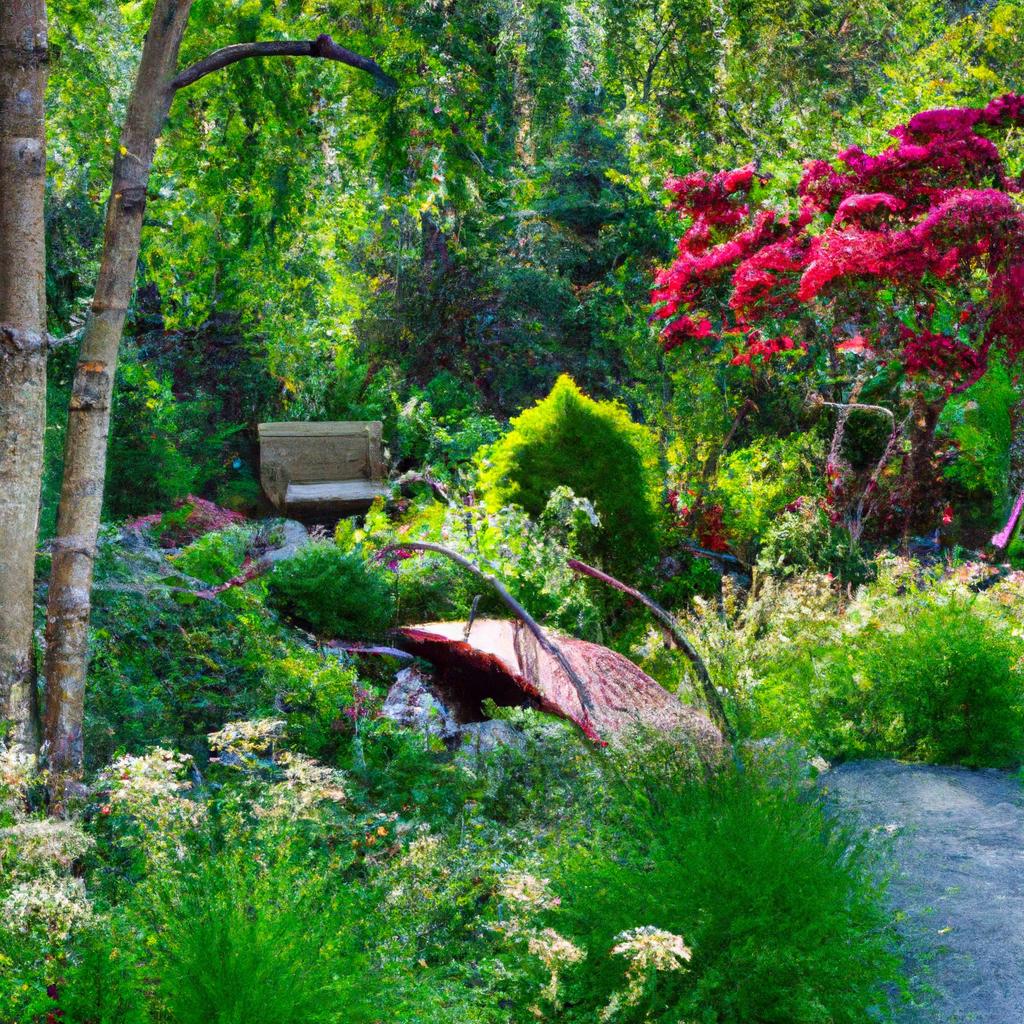
To create a Feng Shui garden landscape that radiates positive energy and tranquility, careful consideration must be given to every aspect of the design. Let’s explore the key elements involved in designing a harmonious outdoor space.
A. Site Selection and Layout Considerations
When selecting the site for your Feng Shui garden, seek an area that receives ample sunlight and has a gentle slope to allow for proper drainage. Consider the surrounding environment as well, aiming to create a seamless transition between your garden and the natural landscape. Take into account any existing structures or trees that may impact the flow of energy and make adjustments accordingly.
B. Incorporating Water Features
Water is a vital element in Feng Shui garden design, symbolizing abundance and prosperity. Consider incorporating a flowing water feature, such as a small pond, fountain, or a gently trickling stream. Position it in a way that encourages the flow of energy throughout the space. The sound of water can soothe the senses and create a peaceful atmosphere, enhancing the overall harmony of the garden.
C. Creating a Focal Point
A well-designed Feng Shui garden often features a focal point that draws the eye and serves as a center of energy. This focal point can be a sculpture, a beautifully adorned tree, or a captivating arrangement of rocks. The key is to choose something that resonates with you and aligns with the desired energy of the garden. Place it strategically, ensuring it commands attention while maintaining a sense of balance within the overall landscape.
D. Choosing Appropriate Plant Species
Plants play a crucial role in Feng Shui garden design, representing the Wood element and connecting us to nature. Select plants that thrive in your climate and resonate with the energy you wish to cultivate. Consider the shapes, sizes, and colors of the plants, as well as their placement in the garden. Avoid overcrowding and ensure there is ample space for each plant to grow and flourish.
E. Adding Decorative Elements
Incorporating decorative elements in your Feng Shui garden can add a touch of personalization and symbolism. Wind chimes, statues, and lanterns can evoke specific energies and enhance the overall ambiance. Choose items that resonate with you and align with the desired energy of your garden. Place them strategically, considering the flow of energy and the balance of the space.
By carefully considering site selection, incorporating water features, creating a focal point, choosing appropriate plant species, and adding decorative elements, you can design a Feng Shui garden landscape that exudes harmony and positive energy. In the next section, we will explore how to enhance the positive energy in your garden through decluttering and maintenance.
Enhancing Positive Energy in a Feng Shui Garden Landscape
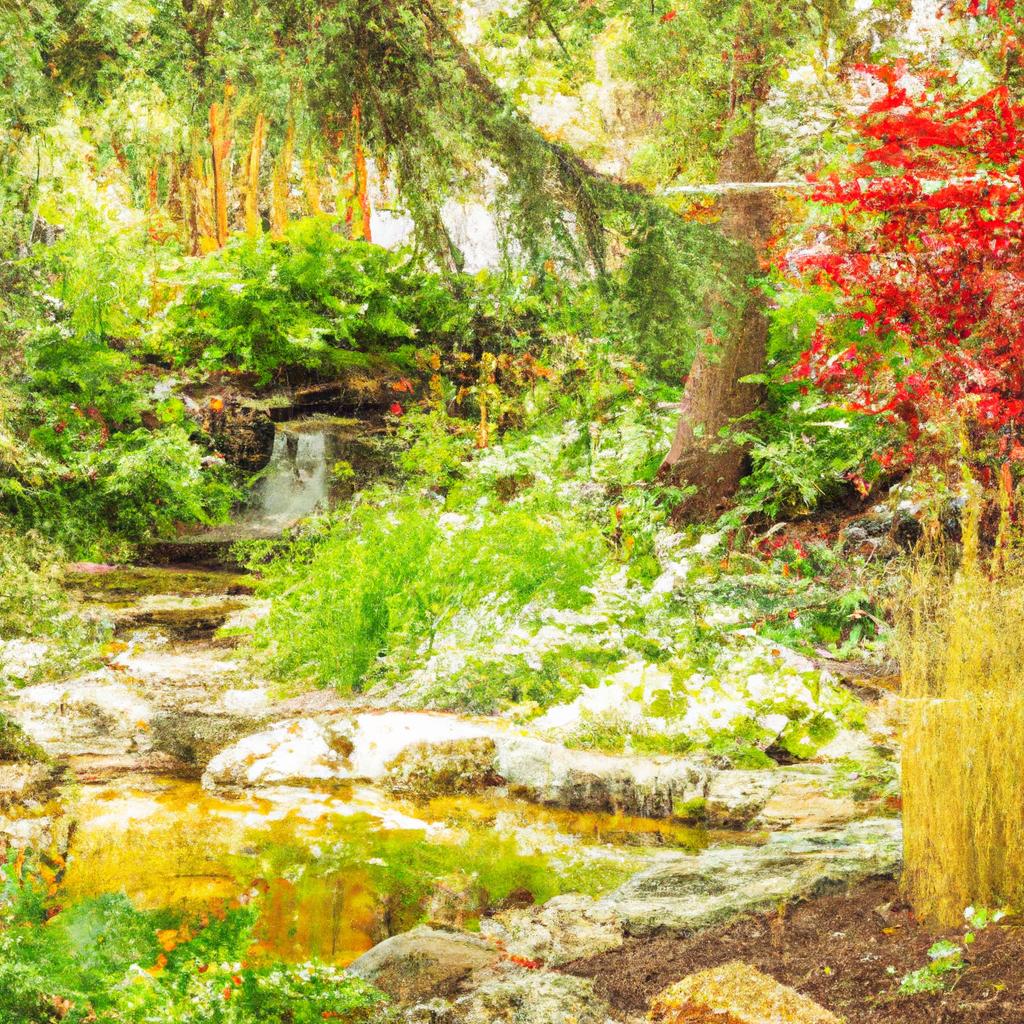
In a Feng Shui garden landscape, creating an environment that fosters positive energy is essential to cultivating harmony and balance. Let’s explore some practical ways to enhance the positive energy in your outdoor sanctuary.
A. Clearing Clutter and Maintaining Cleanliness
To promote positive energy flow, it is crucial to declutter your garden space regularly. Remove any unnecessary items, trim overgrown plants, and organize garden tools and furniture. A clutter-free environment allows for the smooth flow of Qi, creating a sense of peace and tranquility. Additionally, maintaining cleanliness by regularly sweeping pathways, removing fallen leaves, and keeping water features clean further enhances the positive energy in your garden.
B. Maximizing Natural Light and Ventilation
Natural light and fresh air are vital components of a vibrant and energizing garden. Ensure that your garden receives ample sunlight by strategically placing plants and structures to avoid excessive shade. Incorporate features like pergolas or trellises to create dappled shade, allowing for a balance between light and shade. Maximizing ventilation by creating open spaces and using plants that promote air circulation also contributes to a refreshing and invigorating atmosphere.
C. Incorporating Sound and Aroma Elements
Sound and aroma elements play a significant role in stimulating the senses and enhancing the positive energy in a Feng Shui garden. Consider adding a water fountain or a wind chime to introduce soothing sounds that create a calming ambiance. Incorporate fragrant flowers, herbs, or essential oils to infuse your garden with delightful scents that uplift the spirit and promote relaxation.
D. Utilizing Proper Garden Maintenance Techniques
Proper garden maintenance is essential to ensure the vitality and positive energy of your outdoor space. Regularly prune plants to maintain their health and shape, remove weeds promptly, and fertilize your garden appropriately. By nurturing your plants and maintaining their well-being, you encourage the flow of positive energy and vitality throughout your garden.
E. Practicing Mindfulness and Meditation in the Garden
Embrace the opportunity to connect with nature and cultivate inner peace by practicing mindfulness and meditation in your Feng Shui garden. Find a quiet spot, sit comfortably, and allow yourself to be fully present in the moment. Engage your senses, observe the beauty around you, and let the positive energy of the garden envelop your being. This practice not only deepens your connection with nature but also promotes a sense of harmony within yourself.
By implementing these practices, you can enhance the positive energy in your Feng Shui garden landscape, creating a space that nurtures and revitalizes both your external environment and inner self.
Feng Shui Garden Landscaping Tips for Different Areas
When it comes to implementing Feng Shui principles in your garden, each area requires specific attention to maximize its potential. Let’s explore some tips for creating a harmonious Feng Shui landscape in different areas of your outdoor space.
A. Front Yard
The front yard serves as the first impression of your home and sets the tone for positive energy flow. To enhance the Feng Shui of your front yard, consider incorporating a winding pathway to guide the Qi towards the entrance. Use vibrant and healthy plants to invite prosperity and place welcoming elements like a water feature or a decorative statue near the entrance to attract positive energy.
B. Backyard
The backyard is often a place of relaxation and leisure. To create a Feng Shui oasis in your backyard, focus on incorporating elements that promote tranquility and balance. Consider adding a water feature, such as a small pond or fountain, to activate the flow of energy. Create cozy seating areas surrounded by lush greenery to foster a sense of harmony and connection with nature.
C. Balcony or Rooftop Gardens
Limited outdoor space doesn’t mean you can’t create a Feng Shui haven. Balconies and rooftop gardens offer unique opportunities to infuse Feng Shui principles into your living environment. Opt for compact plants with rounded leaves to soften sharp angles and promote a sense of calm. Use mirrors strategically to reflect light and expand the space. Incorporate wind chimes or small bells to invite gentle sounds and activate positive energy.
D. Zen Gardens
Zen gardens, also known as Japanese rock gardens, are renowned for their simplicity and tranquility. When designing a Zen garden, focus on minimalism, balance, and symbolism. Use rocks, gravel, and sand to represent water and create flowing patterns. Introduce carefully placed plants or bonsai trees to add a touch of nature. Remember, the key is to create a space that fosters meditation and contemplation.
E. Courtyard Gardens
Courtyard gardens, typically found in enclosed spaces, offer a private retreat. To optimize the Feng Shui of your courtyard, emphasize the five elements: wood, fire, earth, metal, and water. Use wooden elements like trellises or planters, incorporate a fire pit or outdoor fireplace, integrate earthy tones and materials, add metal accents for clarity, and introduce water features to encourage the flow of positive energy.
By tailoring your Feng Shui garden design to specific areas, you can maximize the energetic potential of each space. Whether it’s the welcoming front yard, the serene backyard, a cozy balcony, a Zen garden, or a private courtyard, each area presents an opportunity to create a harmonious and balanced environment. With these tips in mind, let your creativity flourish as you bring the principles of Feng Shui to life in your garden.
Conclusion
As we come to the end of our exploration into the realm of Feng Shui garden landscape design, it is clear that incorporating these principles can truly transform your outdoor space into a harmonious haven. The art of balancing energy, embracing natural elements, and strategically placing plants and structures can create a garden that not only pleases the eye but also nurtures your well-being.
In conclusion, a Feng Shui garden landscape design offers numerous benefits, including enhanced positive energy flow, a deeper connection with nature, and a serene environment for relaxation and meditation. By implementing these principles, you can create a space that not only reflects your unique personality but also supports your overall well-being.
At homegardenArtful.com, we believe that every individual deserves to have a garden that not only looks beautiful but also feels harmonious and balanced. We encourage you to embrace the principles of Feng Shui in your garden design and experience the transformative power it can bring to your outdoor space.
Take the first step on your journey towards a harmonious garden landscape by incorporating the principles of Feng ShuLet the energy flow freely, embrace the natural elements, and create a space that resonates with your soul. Your garden will become a sanctuary, a place where you can find peace, tranquility, and inspiration.
Remember, the key to a successful Feng Shui garden landscape design lies in your intention, creativity, and willingness to connect with nature. So, go ahead and embark on this enriching journey of harmonizing your garden with the principles of Feng ShuYour outdoor space will become an oasis of serenity, where positive energy abounds and nature’s beauty thrives.
Let your garden be an expression of your inner harmony and a testament to the transformative power of Feng ShuStart designing your Feng Shui garden landscape today and unlock the true potential of your outdoor sanctuary!
Note: This article was written exclusively for homegardenArtful.com and may not be reproduced without permission.

